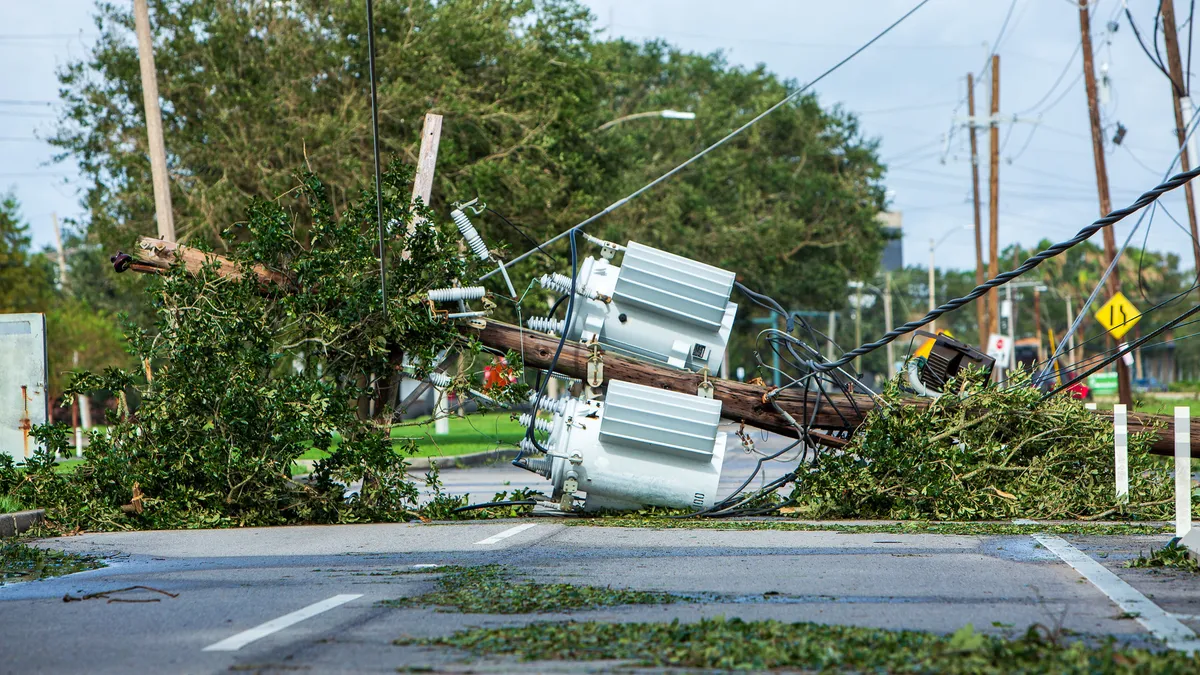The following is a contributed article by Jesse George, policy director at Alliance for Affordable Energy
New Orleanians were supposed to be headed for the polls on Oct. 9 to elect a new mayor and city council. In the wake of Hurricane Ida, officials postponed the election until Nov. 13.
In addition to delaying our election, Hurricane Ida again exposed the utter dysfunction of Entergy New Orleans, or ENO. By now, the story has been reported across the national media: Hurricane Ida’s winds, reaching only Category 1 strength in New Orleans, disabled all eight transmission lines — supposedly rated for Category 4 strength — feeding into the City of New Orleans. The New Orleans Power Station, or NOPS — a hugely controversial and unpopular methane-fired power plant in New Orleans East that ENO sold to the council on its blackstart capability — could not be fired up safely without the restoration of transmission from the northshore of Lake Pontchartrain, which took several days to accomplish. Meanwhile, elders died in their sweltering homes, and families forced to rely on combustion generators were poisoned in their sleep.
When voters make their selections for New Orleans City Council this autumn, they will be electing not only a legislative body, but also a regulatory agency. Under the New Orleans Home Rule Charter, our city council has the authority to regulate public utilities within its jurisdiction, including ENO. Aside from Washington, D.C., no other municipality in the country regulates an investor-owned utility where a state-level regulatory agency exists. Thus, the New Orleans City Council holds extraordinary power.
At the time that the council approved NOPS, the organization where I serve as New Orleans Policy Director, the Alliance for Affordable Energy, as well as our partners in the Energy Future New Orleans Coalition, or EFNO, argued that rather than investing hundreds of millions of ratepayer dollars in a fossil fuel generating unit that would be useless in the event of a catastrophic event like a hurricane, ENO should expand and harden its transmission system and invest in local distributed energy resources such as rooftop solar and battery backup systems, which would provide true resilience following a disaster. In the end, Entergy got its way, despite a paid actor astroturfing scandal on the part of the company. As we predicted at the time, when NOPS was finally put to the test, New Orleanians were left sweating in the dark.
Entergy’s failures with regard to Ida are only part of a larger pattern of corporate corruption and dysfunction. In addition to the paid actor scandal, the city council fined the company $1M in 2019 as a result of routine reliability issues, with which New Orleanians are all too familiar. And even before Ida blew through, the council had opened a prudence investigation into ENO’s actions around Winter Storm Uri in February 2021, during which the company shed more than four times the load required by the Midcontinent Independent System Operator, or MISO, leaving thousands of residents freezing in the dark unnecessarily on the coldest night of the year with no warning. The company’s mismanagement of its Grand Gulf nuclear power plant prompted the council to join a pending Federal Energy Regulatory Commission complaint against Entergy. The list goes on.
At its regular monthly meeting on Sept. 23, 2021, the New Orleans City Council passed a slate of resolutions opening investigations into ENO’s transmission planning and its planning and response around Hurricane Ida, as well as commissioning an independent management audit of the company. A similar audit of Hawaii Electric that the Hawaii Public Utilities Commission conducted in 2020 found $21 million in immediate savings to ratepayers, as well as an additional $26 million in savings that could be achieved within one year through organizational restructuring.
Back in July of this year, ENO submitted an application to the council for a rate increase that would result in an addition of approximately $25 to the average monthly residential bill. That the company would seek such an increase at at time when the COVID-19 Delta variant is still ravaging the state, in a city where over 50% are renters — many of whom still face economic precarity due to our depressed tourism-based economy and who face imminent eviction — is unconscionable. Unless the council takes action, this increase will take effect automatically in November. New Orleanians — who already experience one of the highest energy burdens of any city in the nation — should not be required to pay a single dime more to ENO at least until the audit and investigations are complete.
Though the power to prevent the pending rate increase rests with the current council, the next council will be tasked with following through on these investigations. It will also have the authority to shape the direction of energy policy in New Orleans, a city that is particularly vulnerable to the effects of climate change, including the increasing frequency and intensity of tropical storm systems. Entergy has demonstrated repeatedly that it is committed to a way of doing business that is unaffordable to ratepayers and unable to provide the kind of reliability and resilience that are becoming more and more necessary in the face of climate disaster. We need city council members who understand the awesome authority they wield over Entergy, and who have the courage to act boldly in their regulation of the company. The future habitability of our city quite literally depends on it.













